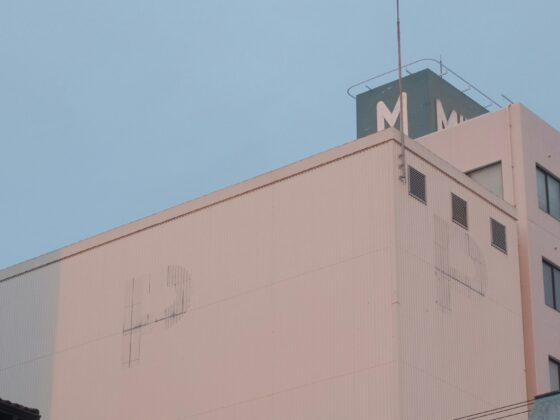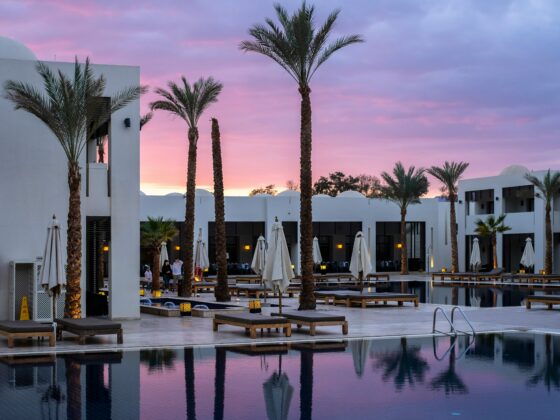Booking a meeting room should be as easy as ordering your morning coffee—instant, seamless, and hassle-free. Yet, for many hotels, managing meeting room bookings remains a frustrating and inefficient process. Rising costs, staffing shortages, and the demand for instant responses stretch hotel teams thin.
So, how can hotels break free from outdated, time-consuming booking processes? The answer lies in automation. We spoke with Anne Beekman, Director of Technology Partnerships at Meetingselect, to uncover how technology is revolutionising this space. Anne shares how integrated tools solve operational challenges, unlock new revenue opportunities and elevate the guest experience.
Takeaways
Meeting room bookings are becoming increasingly complex, with rising costs, staff shortages, and demand for instant responses.
Automated booking tools streamline operations, reducing manual workloads and accelerating response times.
Real-time API integration ensures accuracy, preventing double bookings and optimising revenue opportunities.
Dynamic pricing is the future, enabling hotels to maximise profitability based on real-time demand.
Integrated booking tools enhance visibility, attracting corporate clients while broadening market reach.
Addressing industry challenges with intelligent automation
Hotels today face multiple obstacles in managing their meeting room bookings. The combination of rising costs, increased demand for smaller meetings, and the persistent labour shortage put pressure on operational efficiency. Beekman states, “73% of hoteliers cite staff shortages as their biggest concern, while 80% of meetings now host fewer than 30 participants.” This shift in demand has accelerated the need for quicker, more efficient booking processes.
An integrated booking tool, such as Cyberdigma’s Meeting Booking Widget, addresses these challenges head-on by automating bookings, reducing manual workload, and providing real-time availability. “Customers now expect responses within 10 minutes, and traditional processes struggle to keep up,” explains Beekman. By implementing an automated system, hotels can meet these expectations while maximising conversion rates and revenue.
Also, hoteliers must consider the financial pressures caused by inflation, rising interest rates, and increased working capital costs. Automated booking tools reduce these financial burdens by optimising resource allocation and minimising unnecessary expenses, making them an essential investment for long-term profitability.
“By handling data in real-time, the integration offers a fast, efficient experience for both meeting planners and hotels. It allows for instant decisions, quick confirmations, and dynamic pricing updates. This improves customer satisfaction and helps hotels optimise their operations, maximise revenue, and minimise manual workloads.” Anne Beekman.


Unlocking operational efficiency with seamless integration
One of the most significant advantages of an integrated booking tool is its ability to streamline operations. Traditional meeting room bookings often require extensive back-and-forth communication, with hotel staff spending between 20 to 60 minutes handling each request. However, with automation, “hotels can process up to 80% of bookings in under a minute, freeing staff to focus on higher-value tasks,” says Beekman.
Furthermore, response times drop dramatically when booking systems are integrated with a hotel’s Property Management System (PMS). “Clients gain instant access to live availability, eliminating the need for lengthy email exchanges and manual confirmations,” she adds. This real-time data access improves customer satisfaction and increases efficiency by reducing the average response time from hours to mere seconds.
Hotels using automated booking tools have reported increased efficiency, with staff being able to dedicate more time to complex event planning and guest services. These efficiencies translate directly into improved profitability and guest satisfaction, reinforcing the business case for automation.
Overcoming technical challenges in integration
While the benefits of automated booking systems are clear, integrating them with existing hotel infrastructure can be complex. Many hotels operate with diverse PMS platforms that may lack standardised data structures or modern APIs. “Older systems often require extensive customisation, making integration more costly and time-consuming,” notes Beekman.
However, partnerships with API-focused providers simplify this process. “By leveraging scalable APIs, hotels can automate availability and booking updates without requiring custom development, ensuring a smoother, more efficient integration process,” explains Beekman. The result is a booking tool that seamlessly syncs with the hotel’s ecosystem, reducing IT burden while enhancing operational fluidity.
One significant challenge in this process is ensuring data security and compliance with international regulations, such as GDPR. Hotels must work closely with their technology providers to implement robust encryption and access controls, preventing unauthorised data breaches and ensuring seamless data sharing across platforms.
Real-time data and dynamic pricing: The key to revenue optimisation
Real-time data accuracy is crucial for successful meeting room bookings. Integrated booking tools rely on API connections to ensure that availability, pricing, and reservations remain up to date. “By continuously syncing with the PMS, we eliminate issues like double bookings or outdated pricing, ensuring a seamless experience for both planners and hotel staff,” says Beekman.
Beyond efficiency, these tools also empower hotels with advanced revenue management features. Historically, meeting rooms operated on fixed pricing models, unlike guest rooms, which have embraced dynamic pricing strategies. But that is changing. “Our system analyses booking patterns and demand fluctuations, allowing hotels to implement revenue-maximizing strategies,” Beekman explains. This means venues can adjust rates based on demand trends, optimising revenue and ensuring maximum occupancy.
Hotels using dynamic pricing tools can maximise revenue by adjusting meeting room rates based on peak times, demand trends, and special promotions. This data-driven approach ensures that hotels are making the most of their available space, optimising both occupancy rates and profitability.
Enhancing user experience for hotels and clients
Hotels that have adopted integrated booking tools report overwhelmingly positive feedback. Staff appreciate the reduced manual workload and streamlined booking process, while guests benefit from a frictionless experience. “For venues that require additional control, we offer optional verification steps, ensuring that bookings meet operational needs without slowing down the process,” states Beekman.
Moreover, customisation options allow hotels to tailor the interface to their branding, ensuring a cohesive user experience. Whether offering corporate discounts, seasonal promotions, or flexible lead times, these tools provide the flexibility hotels need to cater to a diverse clientele.
Further, integrating artificial intelligence (AI) into booking tools allows for intelligent recommendations based on user behaviour, past bookings, and personalised preferences. This elevates the guest experience by delivering highly tailored options, increasing satisfaction and long-term loyalty.


The road ahead for automated booking systems
With technology evolving rapidly, the future of meeting room management will likely see even more enhancements. Scalability is a key focus, with providers ensuring that solutions remain adaptable to venues of all sizes. Looking ahead, Beekman shares insights into upcoming innovations: “We are continuously refining our booking tools based on user feedback, integrating AI-driven recommendations and deeper revenue management analytics.” These developments promise to make meeting space management even more efficient and profitable for hotels worldwide.
Future industry innovations include integrating AI-driven recommendations, voice-activated booking tools, blockchain-based smart contracts for seamless event agreements, and predictive analytics to forecast room demand. These technological advancements will continue to drive efficiency and revenue for hoteliers who embrace innovation.
Final thoughts
The rise of automation in hospitality is not just about convenience—it’s about survival in an increasingly competitive landscape. By integrating real-time booking tools, hotels can improve efficiency, enhance guest satisfaction, and drive revenue growth. As Beekman aptly puts it, “Hotels that embrace automation today are the ones that will define the future of hospitality tomorrow.”
As guest expectations continue to evolve, the demand for seamless, real-time solutions will only increase. Hotels that proactively adopt these technologies will stay ahead of the competition and create an enhanced, customer-centric experience that fosters long-term success.








